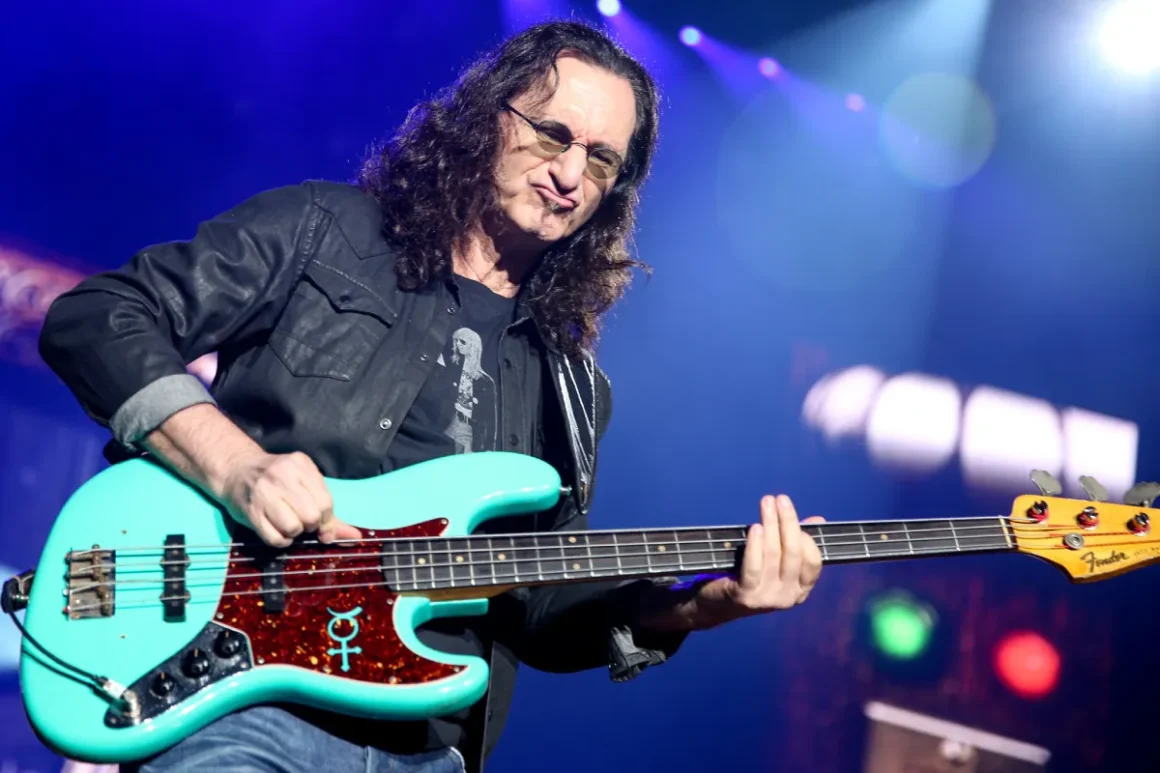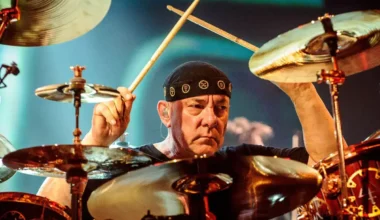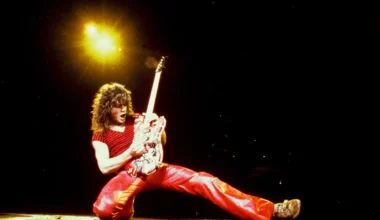Geddy Lee is a bass player who inspires respect for the instrument’s craftsmanship and could use some guidance. In Rush, Lee transformed the bass into a dominant force in music. He frequently played lines that would be better suited for a lead guitar, in contrast to other bassists who clamp down on the low end and never venture past the root notes. Everyone see Lee as a living legend among contemporary bassists but he did identify one competitor who could challenge him.
On the other hand, Lee almost happened upon playing bass by accident. After learning to play the guitar, Lee eventually got the opportunity to perform with his friend Alex Lifeson from school when they needed a bass substitute for a show. This lead him to adopting the instrument as his own for the next few years.
Geddy Lee became more fascinated with the adventurous side of the instrument. Even though he began by learning songs by The Rolling Stones. Lee often mentioned legendary musicians such as Jack Bruce of Cream and John Entwistle of The Who as influences. They treated the bass like a lead instrument, a concept he frequently emphasized.
By the time the group started listening to bands like Genesis and Yes, Lee had once again reorganised his strategy. Lifeson and Neil Peart were unaware that Lee would unintentionally revolutionize progressive rock by integrating complex time signatures. Additionally, he collaborated to create expansive sonic landscapes that extended over prolonged periods.
That’s not to say Lee stopped taking in information from his surroundings. Other bands, such as Primus, were beginning to redefine what the bass could do once the band had established themselves as a legacy act in the 1990s. Les Claypool, in particular, was able to pound away at his bass strings with such intensity that it left the other band members in the dust.
Claypool wielded potent chords in Primus and tapped the fretboard, reminiscent of Eddie Van Halen’s technique. In contrast to Lee’s proficiency on the four-string, Claypool essentially raised the bass to the status of a standalone musical instrument. Claypool wielded potent chords in Primus and tapped the fretboard, reminiscent of Eddie Van Halen’s technique.
“It wasn’t until we toured together that I really got to know his playing and saw how creative and adventurous a player he was”. Lee told Rolling Stone after being completely floored by what he heard when talking about Claypool’s technique. Nobody else is like him. He really encouraged me to try pushing the limits of my rhythmic skills as a player. I consider the Primus tour I took to have been a life-changing experience.
Although Lee already had a distinct sound by the 1990s, he used Claypool’s methods in later Rush albums. Such as the fast-paced bass chords on “Caravan,” which is from the group’s last album, Clockwork Angels. While Rush pioneered progressive thought, Claypool’s arrival made Lee realize age should never hinder learning something new.








